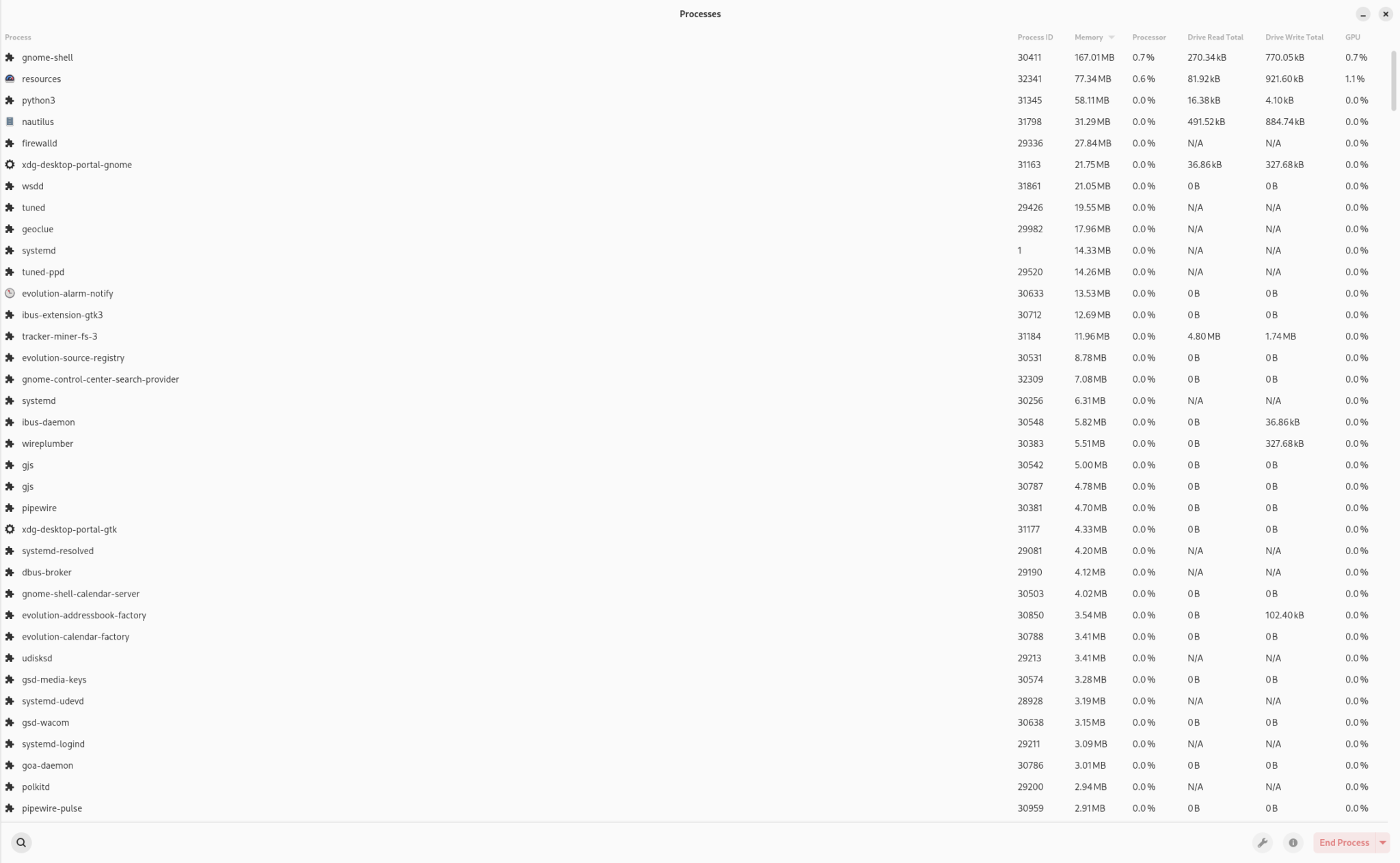How to diagnose severe memory leaks when processes list look normal?
from that_leaflet@lemmy.world to linux@lemmy.ml on 12 Jan 17:17
https://lemmy.world/post/24196605
from that_leaflet@lemmy.world to linux@lemmy.ml on 12 Jan 17:17
https://lemmy.world/post/24196605
I’ve been running into an issue recently where my system will start to stutter and freeze. Going into my task manager (Resources), I can see my using is using roughly 18/32GB of RAM despite closing all apps. Normally I should be at around 2GB on a fresh boot.
I’ve only noticed this issue appearing when first interacting with an app called Newsflash, but the issue persists even after closing the app. I even tried using systemd’s soft-reboot feature and even that did not clear the memory leak. So it seems the memory leak must be in the kernel itself.
And please don’t link linuxatemyram. This is not related to cached data.

threaded - newest
.
That doesn’t make any sort of sense in this scenario.
Check if there’s any large file in /tmp and /run/user/*?
Or just generally
df -h | grep tmpfsand look for any significant usage.All normal
No large files.
I don’t know what this tool is or how it gets its “memory” metric. If you want to continue to use it, please ascertain that these values correspond to RSS by cross checking with i.e.
ps aux. RSS is the memory exclusively held by a given process which is typically what mean by the “memory usage” of any given process. Note however that this does not count anonymous pages of a process that are swapped or shared with other processes.This does not tell you (or us for that matter) anything without defining what “using” means here. My system is “using” 77% of RAM right now but 45% of memory is available for use because it’s cached.
Please post the output of
free -haswell asswapon.Next, please post the contents of
/proc/meminfo.Do you use ZFS?
Resources reports the same memory usage as btop. free tells me only 6GB is being used for cache.
On a fresh boot, Resources and btop report less than 2GB RAM usage, obviously not including cached stuff. So for both tools to report 18GB with no apps open, it’s strange.
ps aux looks all normal, nothing in the background using more than 1% of RAM.
Using Fedora Silverblue 41 with btrfs.
If you’re not going to post what I asked for, nobody can help you.
Are you by chance using an integrated GPU?
Noticed that my AMD Radeon 680M uses quite a lot of RAM as shared memory.
Using something like
amdgpu_topwill show how much RAM your iGPU is using, metric is ‘GTT’No integrated GPU.
Stop using Newsflash or submit a bug report?
I’m not sure if it is related to Newsflash is the problem. Besides, I’ve been using the same version for months, but this has only recently become a problem. And the problem persists after Newsflash is closed.
Got it, but it seems like Newsflash may have a memory leak issue?
To my understanding, the kernel should clean up any memory leaks an app has when you close it.
.
If you had something hog memory and a lot of other stuff got paged out of ram as a result, that can slow things down. Try running “top” and see how much swap space is in use. If it’s more than a little bit, once you have enough memory available by shutting off whatever was hogging it, try “swapoff” (pages the stuff back in, which can take a little while) followed by “swapon” to re-enable swap.
Probably this but seems like a pain to use:
www.kernel.org/doc/html/latest/…/kmemleak.html
Do you use ZFS? It uses half your RAM for cache by default, which matches with 2GB used by user apps + 16GB = 18GB total.
does
echo 3 | sudo touch /proc/sys/vm/drop_cacheschange the available RAM at all when this happens?